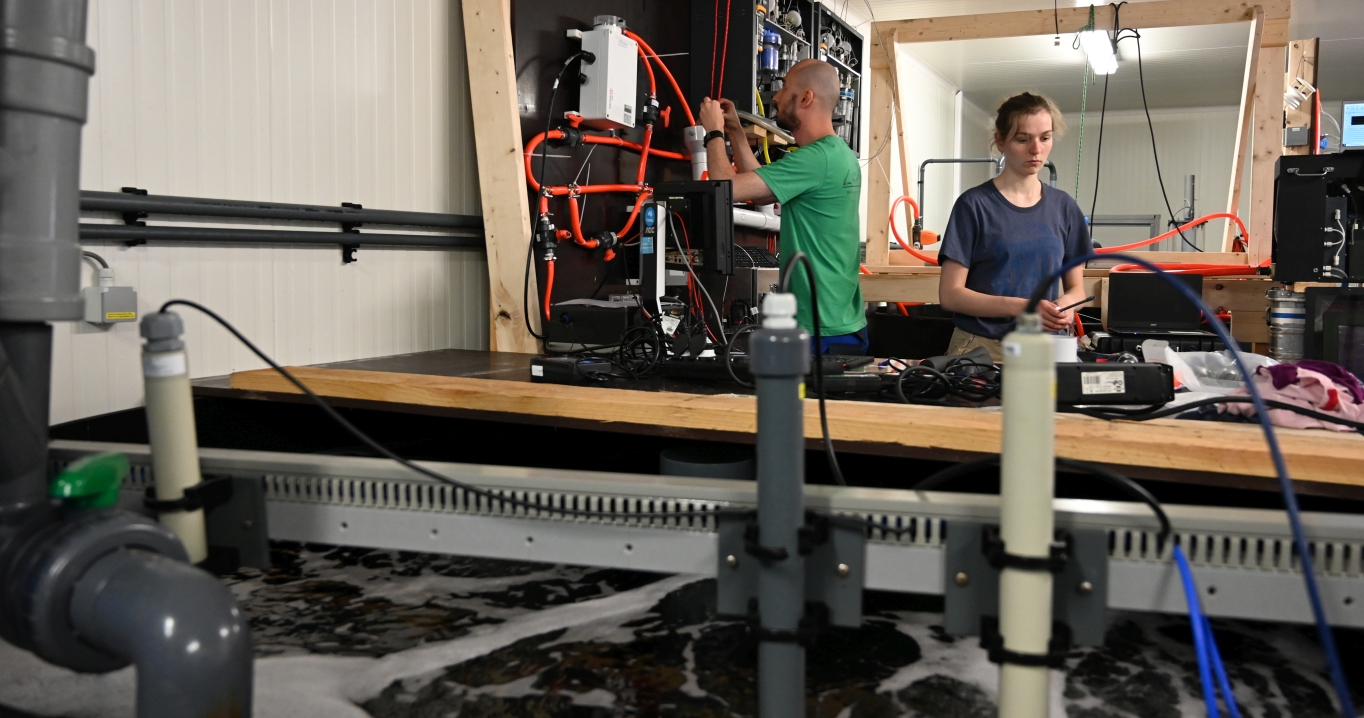30 / 06 / 2021

Photo: VLIZ (Bart De Smet)
Climate change is one of the most pressing societal and environmental challenges. Effective and efficient policies to mitigate and even reverse the current situation will depend on reliable and robust data, products and information, a lot of which will originate from in situ observations. The European Research Infrastructure Integrated Carbon Observation System (ICOS) is focusing on providing high quality standardized data, products and information on carbon dioxide concentrations in the atmosphere, on land and in the ocean. ICOS provides the capacity to quantify the evolution of concentration and fluxes of carbon dioxide between the various sources and reservoirs.
The global ocean is a significant sink (i.e. recipient) of carbon dioxide and captures approximately 25% of the anthropogenic carbon dioxide emissions but this figure encompasses large uncertainties. Reducing these uncertainties will assist any decision making and policies. The marine carbon observation community and the developers of relevant measuring systems and sensors are now working together to reduce the uncertainties in the observations.
With this in mind the ICOS Ocean Thematic Centre (OTC), together with a number of competent institutes and companies have planned and organized the 1st ICOS OTC pCO2 intercomparison of sensors and systems that measure dissolved pCO2 in surface seawater. The Flanders Marine Institute (VLIZ) is proud to host this activity in its seawater microcosm facility in the Marine Station Oostende site in Ostend, Belgium from the 28th of June until the 11th of July.
The activity follows the principle of similar activities that took place over the last 3 decades. It has attracted the interest of both the marine CO2 observational community as well as the suppliers/developers of pCO2 instrumentation. As a result there will be 28 systems participating in this experiment.
The COVID-19 pandemic forced the organisers to go for a hybrid event, with a core team operating the sensors in VLIZ and other users participating virtually. During daily webinars all participants discuss how the experiment is progressing.
The main goal is to identify how the participating systems behave under controlled conditions over a period of two weeks and find ways on how to improve them. An important aspect of this activity is to inform the observational community which system/sensor fits best the demand of specific applications and give them confidence in their decision which one to apply. Additionally this community will work closely with the developers and identify ways on how their products can be improved and meet the demands of the users.
All about the workshop on the website of the Ocean Thematic centre of ICOS and on Twitter under the hashtag #pco2compare.